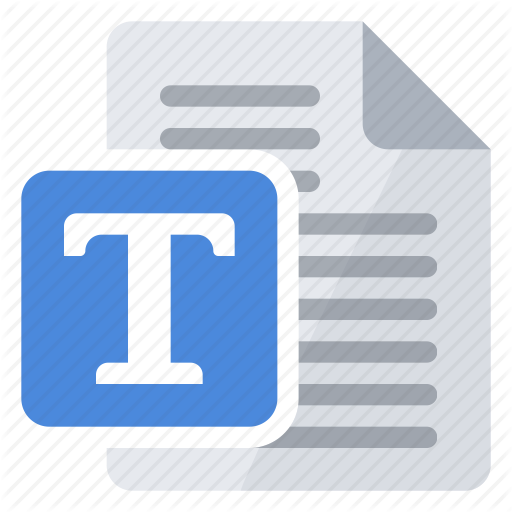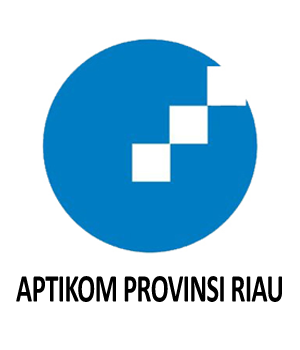The Influence of Computer Use and Information Technology Literacy on Enhancing the Abilities of College Students at the Nahdlatul Ulama Institute of Technology and Science Lampung
Abstract
This study aims to determine the effect of computer use and understanding of information technology on improving the abilities of students in the Information Technology Study Program at the Nahdlatul Ulama Lampung Institute of Technology and Science. The main problem identified is the still low utilization of practical computer technology in the learning process, even though universities have made large investments in providing facilities. This study uses a qualitative approach with a data collection method through a questionnaire distributed to 102 students from the 2021 to 2024 intake. The results showed that most students preferred practice-based learning methods to theory, and more than half of respondents used computers or laptops in their daily activities. In addition, most students already had basic knowledge of technology, information, hardware, software, and networks before entering college. The conclusion of this study is that educational background, experience using computers, and practice-based learning methods significantly affect the improvement of students' abilities in the field of information technology. These findings reinforce the importance of implementing practice-based learning methods and optimizing computer laboratory facilities in order to produce graduates who are ready to compete in the digital era.
Downloads
References
A. Yoga Pratama, N. Gusrianti, and K. Amrul Haq, “Peran Mahasiswa Dalam Meningkatkan Literasi Digital,” J. Tonggak Pendidik. Dasar J. Kaji. Teor. dan Has. Pendidik. Dasar, vol. 1, no. 2, pp. 96–101, 2022, doi: 10.22437/jtpd.v1i2.22876.
A. W. Setiani and J. H. Makkaraka, “Peran Teknologi Informasi Dalam Meningkatkan Pemahaman Mahasiswa / I Tentang Al-Quran,” vol. 4, pp. 10–12, 2024.
A. Pratama, A. Bintoro, and S. Malasyi, “Implementasi Pemanfaatan Teknologi Informasi Dalam Pembelajaran Daring Untuk Meningkatkan Hasil Belajar Siswa,” vol. 3, no. 2, pp. 430–439, 2024.
R. Despriyanti, “Pemanfaatan Teknologi Informasi Dan Komunikasi Dalam Pembelajaran Daring Di Sekolah Dasar,” Didakt. J. Ilm. PGSD STKIP Subang, vol. 7, no. 02, pp. 552–567, 2022, doi: 10.36989/didaktik.v7i02.216.
N. M. H. Dwi Anggreni and I. M. Sadha Suardikha, “Pengaruh Pemanfaatan Teknologi Informasi dan Kemampuan Teknik Personal Pada Efektivitas SIA,” E-Jurnal Akunt., vol. 30, no. 6, p. 1356, 1970, doi: 10.24843/eja.2020.v30.i06.p02.
A. L. Wijaya, “Pengaruh Penggunaan Teknologi Informasi Terhadap Prestasi Akademik Mahasiswa,” J. Account. Bus. Educ., vol. 1, no. 2, 2016, doi: 10.26675/jabe.v1i2.6016.
A. Junaedy, A. Huraerah, A. W. Abdullah, and A. Rivai, “Pengaruh Teknologi Informasi Dan Komunikasi Terhadap Pendidikan Indonesia,” J. Penelit. dan Kaji. Sos. Keagamaan, vol. 18, pp. 133–146, 2021, [Online]. Available: https://dx.doi.org/10.31958/jaf.v11i2.10548
Hunainah and Dede Fatchuroji, “Pengaruh Latar Belakang Pendidikan Orang Tua dan Kecerdasan Emosional Siswa Terhadap Prestasi Belajar PAI,” J. Qaathruna, vol. 5, no. 1, p. 35, 2018.
Jumiati, Sri Yayi, and Yuliansyah, “Rancangan Pembelajaran Bahasa Indonesia Bagi Mahasiswa Asal Papua Sekolah Tinggi Teknik Pln,” J. Heal. Sains, vol. 1, no. 3, pp. 153–164, 2020, doi: 10.46799/jsa.v1i3.55.
C. E. Supriana, “Perancangan Kelompok Kerja Mahasiswa Pada Program Studi Informatika Menggunakan Work System Method,” J. Pas. Inform., vol. 3, no. 1, 2024, doi: 10.23969/pasinformatik.v3i1.12463.
C. F. Jansen, J. Morasa, and A. Wangkar, “Pengaruh Penggunaan Teknologi Informasi Dan Keahlian Pemakai Terhadap Kualitas Informasi Akuntansi (Studi Empiris Pada Pemerintah Kabupaten Minahasa Selatan),” Going Concern J. Ris. Akunt., vol. 13, no. 04, pp. 63–71, 2018, doi: 10.32400/gc.13.03.19994.2018.
D. Puspitasari, T. Informasi, F. Teknik, and N. U. Lampung, “Pengaruh Penggunaan Komputer dan Pemahaman Teknologi Informasi dalam Meningkatkan Kemampuan Mahasiswa Institut Teknologi dan Sains Nahdlatul Ulama Lampung,” vol. D, no. 1, pp. 1–15, 2024.
F. Rahmanita, “Pengaruh Teknologi Informasi dan Komunikasi Pada Kemandirian Terhadap Prestasi Belajar Mahasiswa,” Eduka J. Pendidikan, Hukum, dan Bisnis, vol. 7, no. 2, p. 119, 2022, doi: 10.32493/eduka.v7i2.19398.
M. S. Machrizzandi, “Dampak Teknologi Informasi Terhadap Kondisi Ekonomi Mahasiswa Di Masa Pandemi Covid,” J-Alif J. Penelit. Huk. Ekon. Syariah dan Budaya Islam, vol. 6, no. 2, p. 118, 2021, doi: 10.35329/jalif.v6i2.1843.
T. Ratnawulan, R. Yoseptry, I. Kusmiati, L. Widiawati, and N. N. Kusmawati, “MENINGKATKAN MOTIVASI BELAJAR SISWA Universitas Islam Nusantara , Indonesia Edusaintek : Jurnal Pendidikan , Sains dan Teknologi Vol . 11 ( 2 ) 2024 | 781 PENDAHULUAN Abad 21 merupakan abad pengetahuan , teknologi dan informasi . Salah satu dampak dari be,” vol. 11, no. 2, pp. 781–796, 2024.
Y. M. Jamun, Z. R. E. Ntelok, and R. Ngalu, “Pentingnya Penggunaan Teknologi Informasi dan Komunikasi dalam Menunjang Pembelajaran Sekolah Dasar,” EDUKASIA J. Pendidik. dan Pembelajaran, vol. 4, no. 2, pp. 2149–2158, 2023, doi: 10.62775/edukasia.v4i2.559.
L. Waruwu, A. M. Zebua, F. K. Lase, and O. Harefa, “Evaluasi Penggunaan Teknologi Informasi dalam Pembelajaran di SMK: Tantangan, Peluang dan Solusi,” J. Educ. Res., vol. 5, no. 3, pp. 3790–3799, 2024, doi: 10.37985/jer.v5i3.1328.
F. Putri Safira, D. P. Anestya, H. Kurniawan, S. K. Zahro, N. G. Gustira, and J. T. Nugraha, “Persepsi Mahasiswa Terhadap Dampak Teknologi Dan Informasi Yang Mempengaruhi Kualitas Pembelajaran,” J. Inf. Syst. Manag. Digit. Bus., vol. 1, no. 3, pp. 345–354, 2024, doi: 10.59407/jismdb.v1i3.760.
Yusuf Muri, Metode Penelitian: Kuantitatif, Kualitatif, Dan Penelitian Gabungan. Jakarta: Kencana, 2017.
L. Nugroho et al., Metodologi Penelitian Akuntansi dan Praktik Penulisan Artikel Bidang Akuntansi, 1st ed., vol. 1. Kabupaten Bandung: Widina Media Utama, 2023. Accessed: Mar. 24, 2024. [Online]. Available: https://repository.penerbitwidina.com/media/publications/564391-metodologi-penelitian-akuntansi-dan-prak-ef935948.pdf
V. W. Putri and S. Suripah, “Eksplorasi Hasil Penelitian Yang Terintegrasi Teknologi Informasi Dan Komputer (TIK) Dalam Pembelajaran Matematika,” JPPM (Jurnal Penelit. dan Pembelajaran Mat., vol. 14, no. 2, pp. 208–222, 2021, [Online]. Available: https://repository.uir.ac.id/21657/
L. Harahap, “Prosiding Seminar Nasional Teknologi Pendidikan Pascasarjana UNIMED PERAN TEKNOLOGI INFORMASI DAN KOMUNIKASI DALAM PENDIDIKAN,” pp. 375–381, 2019.
D. A. F. Az Zahra, A. Subarno, and W. Winarno, “Analisis penggunaan teknologi informasi dalam pembelajaran daring di SMA Negeri 5 Surakarta,” JIKAP (Jurnal Inf. dan Komun. Adm. Perkantoran), vol. 7, no. 1, p. 31, 2023, doi: 10.20961/jikap.v7i1.60919.
N. Yona Sidratul Munti and D. Asril Syaifuddin, “Analisa Dampak Perkembangan Teknologi Informasi Dan Komunikasi Dalam Bidang Pendidikan,” J. Pendidik. Tambusai, vol. 4, no. 2, pp. 1799–1805, 2020.
F. Agustika, S. Siregar, D. Obara, and V. Paramarta, “Telaah Teknologi Informasi Dan Sistem Informasi Dalam Organisasi Dengan Lingkungan,” J. Bisnis Kolega, vol. 9, no. 1, pp. 24–33, 2023, doi: 10.57249/jbk.v9i1.104.
Eriyanto, Analisis Isi: Pengantar Metodologi Untuk Penelitian Ilmu Komunikasi dan Ilmu-Ilmu Sosial Lainnya. Jakarta: Kencana, 2011.
Copyright (c) 2025 Maisaroh Maisaroh, Dewi Puspitasari

This work is licensed under a Creative Commons Attribution-ShareAlike 4.0 International License.
This is an open-access article distributed under the terms of the Creative Commons Attribution-ShareAlike 4.0 International License which permits unrestricted use, distribution, and reproduction in any medium. Users are allowed to read, download, copy, distribute, search, or link to full-text articles in this journal without asking by giving appropriate credit, provide a link to the license, and indicate if changes were made. All of the remix, transform, or build upon the material must distribute the contributions under the same license as the original.















